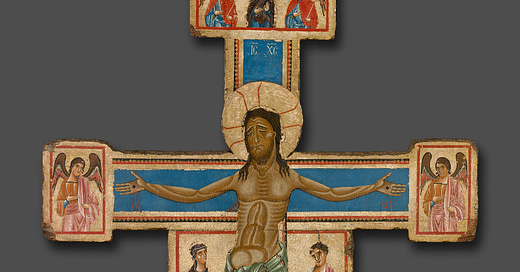If you confess with your mouth the Lord Jesus and believe in your heart that God has raised Him from the dead, you will be saved.
(putative) Calvinists, again, on Matt Bates. And more on justice, humility, and scholarly conversation
Fellow Pilgrims,
I love John Calvin, and I love good Calvinist theology. (I don’t entirely agree with it, but I love it.) What I don’t love is folks, using the name of Calvin, policing the theology of other Christians, especially Arminians, and doing so without paying fair attention to the arguments of those they’ve decided to police.
John Wesley and his …
Keep reading with a 7-day free trial
Subscribe to Church Blogmatics by Beth Felker Jones to keep reading this post and get 7 days of free access to the full post archives.




